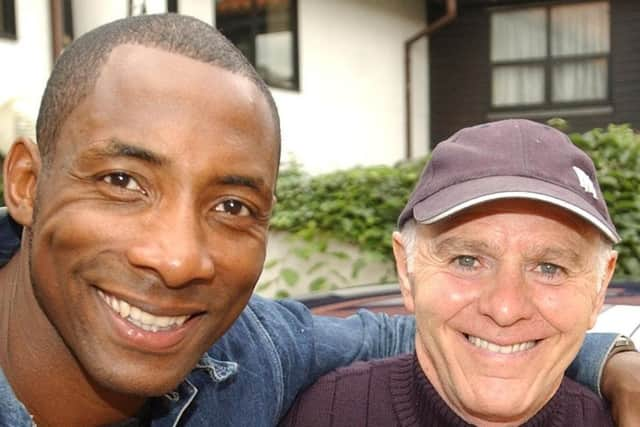Listening to troubled young people could make a critical difference - Dr Alan Billings
He wanted us all to lift our heads out of the facts and figures, the bureaucratic procedures we can so easily get immersed in, and hear some stories of ‘lived experience’.
In particular, he wanted us to hear about how young people, principally males, get drawn into criminality, how something like a stabbing impacts on other family members, and how young people can be steered away from poor decisions in their younger years.
And those who spoke gave powerful and moving testimonies.


Advertisement
Hide AdAdvertisement
Hide AdOne mother spoke about the impact the fatal shooting of her son had upon her. Several men talked about their early lives, which included such traumatic situations. Some of the accounts of abuse were graphic and hard to listen to. The talks were not simply about the scary and traumatic early years the speakers had known, nor the fact that they had turned their lives around.
Ronny had asked them to come because they had all reflected long and hard on their experiences and were able to draw some general lessons from them. This was the part of their story that I was most interested in. What had led them into criminality in the first place? What had made them change, and was it something that could be replicated?
Although each story was different, they all involved some sorts of trauma in early life. And all accepted that their lives could have been different; they made poor choices and every choice had consequences.
One spoke about the way he had been ‘groomed’ – his word – by a drug dealer. This man recognised how vulnerable he was and how lonely. So he befriended him – at least that is what he thought was happening. Gradually his new found friend led him into dealing and a life of criminality.
Advertisement
Hide AdAdvertisement
Hide AdBut what was the catalyst that led to them changing their ways? In each case it was another person who came into their lives and began to treat them differently. Johnny Nelson, a former WBO Cruiserweight Boxing champion, spoke about the influence that Brendan Ingle, the boxing club owner, who died in 2018, had on him.
When he first went to the Wincobank gym, Ingle took him to one side and asked him about his life and hopes. He took an interest in him and asked him some pretty direct questions about his life, why he did the things he did and the choices he was making – something that had not happened before.
No social worker or police officer had asked him questions like this. Other speakers similarly talked about how someone had been willing to listen to them and stand beside them. The message the speakers wanted us to hear was quite simple: don’t give up on these young people. Talk to them, listen to them, because at the end of the day, ‘facts’ are all very well, but what could make the difference, perhaps even the critical difference, is someone who takes that risk and persuades some young person or young adult that better choices can be made.
A shortened version of the Police and Crime Commissioner for South Yorkshire’s latest blog post.